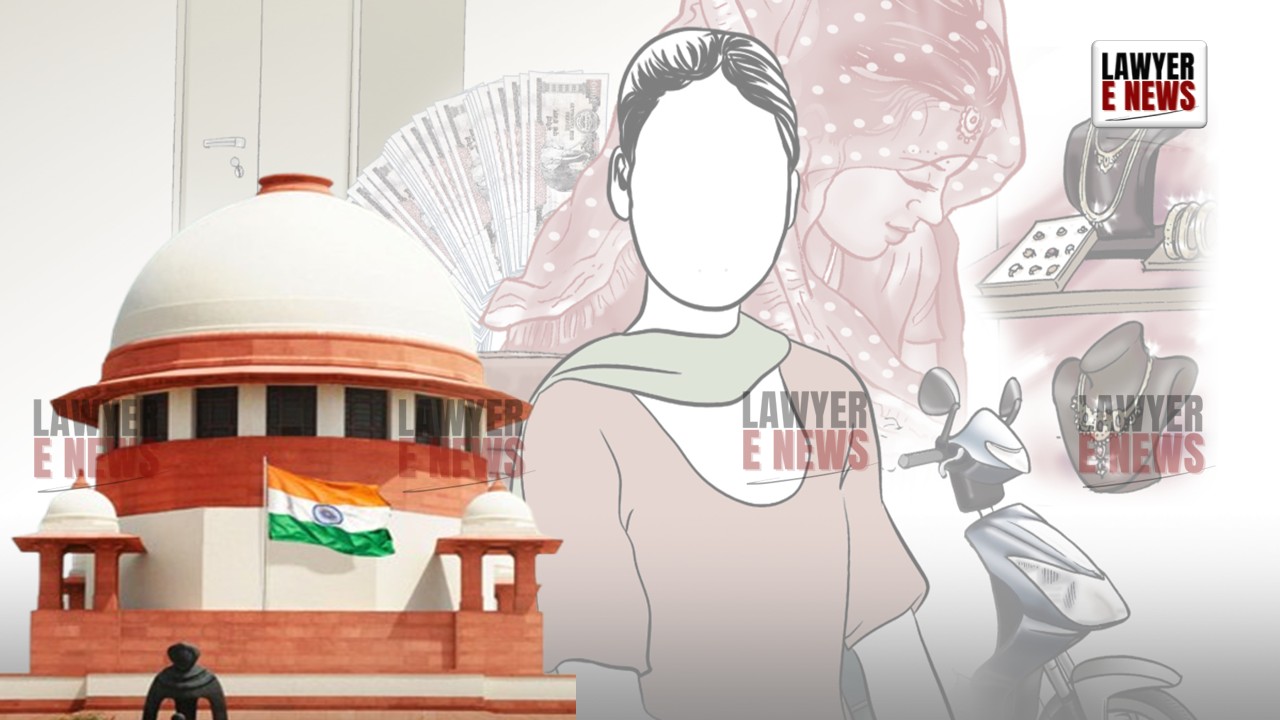-
by sayum
17 February 2026 8:32 AM



“Invocation of Section 498A IPC Must Not Be Mechanical—Justice Must Punish the Guilty, Not Harass the Innocent”, - In a notable judgment Supreme Court of India dismissed SLP (Crl.) filed challenging the Allahabad High Court’s quashing of proceedings under Section 498A, 325, and 506 of IPC and Sections 3/4 of the Dowry Prohibition Act. The Court found that the complaint, filed against the husband and extended family, was fraught with contradictions, vague assertions, and lacked supporting evidence, rendering it a “clear abuse of the process of law.”
“The petitioner had taken contrary stands and there are inconsistencies in the complaint and statement which persuade us to find the proceedings to be a clear abuse of process of the Court.” — Justice K. Vinod Chandran
“Sweeping Allegations Against Extended Family Require Extra Caution”
The complaint originally named ten individuals, including not only the husband and in-laws, but also the father-in-law’s brothers, their wives, and even their children. The Magistrate found no material to summon anyone except the husband and his parents, specifically relying on Geeta Mehrotra v. State of U.P. (2012).
The High Court later quashed the proceedings even against these three, invoking Section 482 CrPC on the basis of the Supreme Court’s guidance in Preeti Gupta v. State of Jharkhand (2010): “The Courts have to be extremely cautious while dealing with matrimonial cases where the object appears not only to punish the guilty but to also shield the innocent.”
“Fracture Allegation Without Medical Proof, and Karwa Chauth Gift After Alleged Abuse”
Though the petitioner alleged she was beaten and suffered a fracture on 28.09.2020, no medical report was submitted. Curiously, it was also admitted that she received ₹50,000 from her husband on 26.10.2020 for Diwali and Karwa Chauth shopping, including an expensive saree gifted to her.
“Statements made on affidavit regarding the amounts given on 26.10.2020 for purchase of an expensive saree are after 28.09.2020—the date when she claims to have been thrown out.”
This, the Court held, seriously dented the credibility of her claims, especially since she later sought restitution of conjugal rights after the husband had filed for annulment.
“Inconsistencies in Section 156(3) Application and Statement Under Section 200 CrPC”
The complainant alleged dowry demands during visits on 08.10.2020 and 16.12.2021. Yet, her statement under Section 200 CrPC mentioned only one individual, Subodh Tandon, as making a demand of ₹50 lakhs and a Fortuner.
“There is no consistency between the complaint and the statements made to the Magistrate.”
The Court was particularly critical of the absence of written complaints to the Women’s Commission, despite claims of seeking help.
Upholding the High Court’s view that continuing the prosecution would be “an abuse of process”, the Supreme Court ruled: “We find absolutely no reason to interfere with the invocation of the extraordinary power under Section 482, CrPC, which secures the ends of justice and puts to naught a criminal proceeding which is a clear abuse of process of law.”
The Special Leave Petition was dismissed, with all pending applications disposed of.
Date of Decision: 8 May 2025
